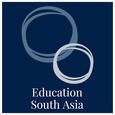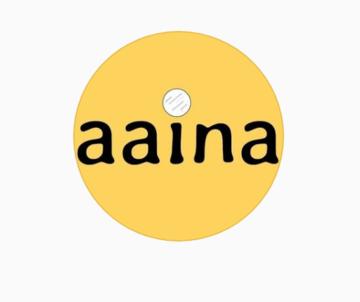Innovation Spotlight Series - Spotlight 1
Aaina: Challenging status quo in education
Written by: Vrinda, Sayan, Joyeeta, Nidhi, Sruthi and Teesta
The coronavirus pandemic has amplified inequalities in the Indian education system, but there have always been underlying structural concerns in educational spaces that don’t receive enough public attention. Teachers are dealing with overwhelming workload and hectic schedules with not only teaching responsibilities but also administrative duties. Support structures for teachers in schools and colleges are largely absent, and the pressures, vulnerabilities and emotions they experience are not sufficiently discussed. Teachers’ strikes are dismissed or maligned, and teachers’ needs are often unmet. Students struggle to meaningfully engage with classroom content and have little say in curriculum-setting. They occupy a hierarchical education system segregated by one’s social and economic position, which means not all students have equal access to books, training and social capital. Students from marginalised backgrounds experience discrimination from their privileged peers, teachers and/or institutions on the basis of existing hierarchies like caste, class, gender, language, and so on. The lives and struggles of academic and non-academic staff within educational spaces are hardly accounted for. Meanwhile, decreased public spending in education and rapid privatization is making education more and more exclusive, turning a right into a commodity that can be bought at soaring prices.
The birth of Aaina
The social media collective Aaina was born out of the impulse to represent, highlight, and discuss the intersecting issues affecting the education system in India, from the micro to the macro, from the pedagogic to the policy-level. While there are growing critical accounts of these problems in academic scholarship, we found that there is a paucity of popular platforms where we can discuss these issues and collectively reflect on our experiences. Conversations within academic circles often happen in silos and do not reach a large number of people, including various participants in educational systems who would tangibly benefit from it. Sometimes, critical academic work is too dense and impersonal, oriented towards furthering theoretical understanding over generating usable insights for practitioners. We felt we were missing something: a space where students, teachers, parents, institutional administrators, and others can come together to identify what needs to change in education, and how to get there. That was the reason that Aaina began.
We are currently an initiative comprising of six members, and each approaches education from a different disciplinary background and set of interests, spanning pedagogy, linguistics, sociology and design. Our current team includes Vrinda, a linguistics researcher; Sayan, writing faculty at the Young India Fellowship, Ashoka University; Joyeeta, a researcher in sociology of education; and Nidhi, pursuing a Master’s in sociology from JNU; Sruthi, an English instructor at the Centre for Continuing Education, IIT Madras; and our illustrator, Teesta, an ELT teacher based out of Vietnam. As a team of teachers, researchers and students, we share a vision that the education system in India should be based on principles of social and economic justice. We recognise that the education system, in its current form, is not only affected by social inequalities, but also plays a role in perpetuating them. These forms of discrimination exist in both education planning and classroom experience, and are based on hierarchies of caste, gender, class, disability, religion, ethnicity, and language, among others.
Challenging hierarchies
We believe in challenging how such hierarchies shape notions of ‘good schools’, ‘merit’, ‘intelligence/capabilities’, and ‘prestige’ that socially privileged people uphold through their beliefs and actions, even when they are seemingly well-meaning. We also believe in challenging the neoliberal educational discourse that shifts the goals of education from creating an empathetic system that fosters critical consciousness to technocratic ideas of ‘efficiency’ and ‘accountability’. We demonstrate how these discourses often neglect the contexts and struggles of students, teachers, and workers. In February 2021, we launched Aaina on Instagram and Facebook, to invite people to deliberate with us on some of these concerns. Our aim was not just to describe the problems, but also think towards alternatives: how can we make educational spaces more equal, engaging and just?
Aaina builds resources that communicate critical perspectives on education to students, educators as well as audiences not currently involved with educational institutions. Our posts cover a variety of topics like curriculum, pedagogy, funding, modes of assessment, structural hierarchies, social relationships, and emotions in educational spaces. In thinking about these issues, we centre the pervasive issue of inequality and the need for the privileged to be self-critical about their histories and practices. Aaina is a space of learning and self-reflection for the creators as well, where we attempt to expose our own role, as dominant caste people, in perpetuating inequalities in education, and talk to people that we need to for these reckonings to take place on a larger, collective scale.
We present these issues through visual storytelling, through characters and settings that capture inequality as an experience, rather than just facts about society.
We do this by translating social studies research into informal conversations among students and teachers in everyday educational settings. We do not just use empirical findings, but also relate theoretical insights to everyday educational experience. We also identify, through conversations with people, common forms of discrimination in educational spaces and demonstrate them to make these patterns more recognisable for all. Creating each post requires attention to the many layers of a problem. Not stopping at the simplest explanation, we try to offer charitable readings of problems, by taking into account the structural positions, limits and experiences of everyone – teachers, students, families and administrators. We attempt to model conversations on areas of conflict between different actors in education, to show how one could productively work through them. For example, it is perhaps not common for students to be discussing the politics of teacher accountability, but we try to conceive situations where students reflect on their expectations from teachers and institutes. Our hope is that by imagining empathetic interactions that may not be happening currently, we may be able to initiate them.
A collaborative methodology
Our method is highly coactive: once a theme is raised, we suggest research material, sharpen our message through internal conversations/disagreements and stay involved while visualising and editing. And we do not hesitate to shelve posts that do not feel adequately thought out; or return to them later with fresh insight. Our first slides usually set the premise and hook the viewer, and the subsequent slides develop or complicate the issue. On the last slide, we offer a simple, concise explanation of the theme on multiple levels, and make some recommendations. We aim for as much lucidity as possible on the issue and firmly steer clear of disciplinary/theoretical jargon, to draw more people in. For those interested in learning further on these topics, we cite the readings we drew upon. We also reflect on the politics of our visual representation: we consciously avoid using characters in a manner which may reinforce stigmatising or tokenistic stereotypes. The illustrated world of Aaina centres people and their experiences, and builds our visual style.
We also collaborate with individuals and organisations who reach out to us to explore issues within education. This year, we are collaborating with Youth Ki Awaaz’s initiative, Kaksha Crisis to create a series of posts around gender and education. We have also created a podcast episode with newer initiatives like Let's Talk Edu and a live interaction with Spread Love and Peace , discussing some of our ideas. We remain open to new ideas, questions and partnerships. Aaina also hopes to be a resource for people engaged within educational settings; educators have mentioned that our posts have helped them initiate conversations with peers. Many of our posts have resonated with younger educators in higher education. On Instagram, around 50% of our audience is from Indian metropolitan cities, and we also have a small portion of audience from other countries. Even though our audience is primarily between ages 25 and 34, increasingly, more younger people (ages 18-24) have been joining our page. Social media, especially Instagram, is limited in its reach, and we might not be able to reach many through this medium alone. However, at this moment, individuals and groups who engage with our page include students and teachers across both schools and higher education, academic researchers, illustrators, left-progressive and anti-caste activists, college clubs, student political organisations, academic forums (such as Education South Asia), media platforms (such as PARI), NGOs, and various emerging educational initiatives, among others.
We’ve also faced negative feedback and received constructive criticism from our audience: often, a post goes up and people offer a much wider range of interpretations than we had thought of. For example, discussing Hindu dominance in school cultural practices led to a heated debate, including abusive trolling in the comments section. Similarly, there has been some opposition when we have brought up caste-based discrimination or advocated the need for reservations in our posts. While we strongly disagree with some of these comments, the sheer diversity of the positions, contexts and experiences that people speak from often helps us nuance our views and pushes us to communicate our ideas more precisely, taking into account audience feedback.
Aaina is the beginning of what we hope is a long and fruitful journey.
We’ve also found that people are hungry for such spaces; teachers are all too eager to share their diverse experiences, challenge us and rethink their own stances. At the same time, there is a lot we have yet to figure out. What kind of an ‘impact’ does our content really have in a relatively elite social media space like Instagram? Are we able to effectively simplify academic jargon? What could be other aesthetic forms and languages in which we need to convey our message? How can we reach out to more people in non-metropolitan spaces? How can we engage with our own blind spots, and focus on a wider variety of issues? These are some of the questions that animate us as we continue to develop. Meanwhile, we remain steadfast in our goal: to ensure that the task of reflecting on and questioning the status quo in education becomes vital in homes, schools, colleges, policymaking quarters and professional contexts. It is only through the political consciousness that emerges from such reflection that we can build a socially just world.
Find out more about Aaina's work:
Podcast: Lets talk education
Author Information: Vrinda is a linguistics researcher; Sayan is writing faculty at the Young India Fellowship, Ashoka University; Joyeeta is a researcher in sociology of education; and Nidhi is pursuing a Master’s in sociology from JNU; Sruthi is an English instructor at the Centre for Continuing Education, IIT Madras; and Teesta is an ELT teacher based out of Vietnam.




